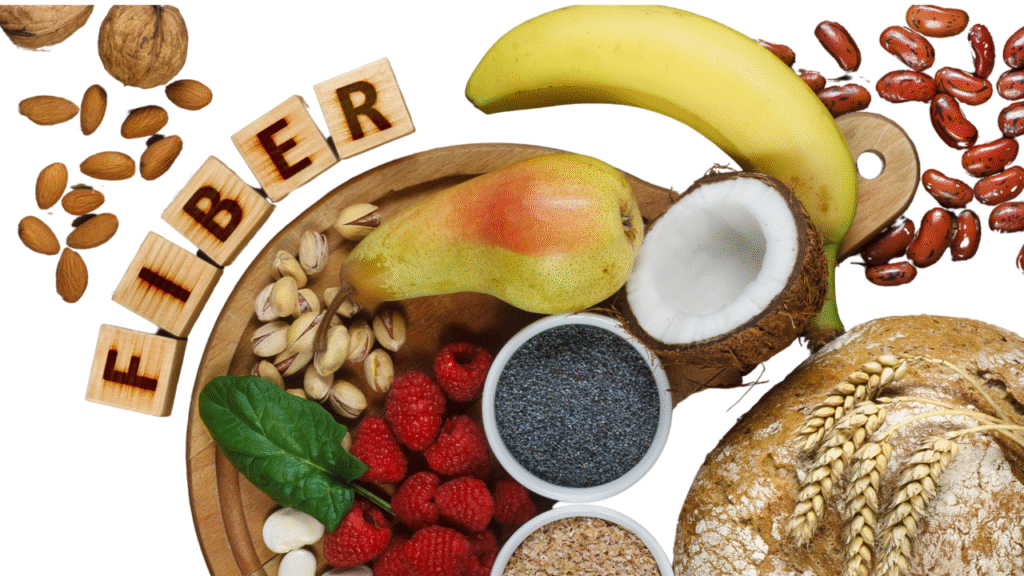
There is no cure for colds or flu, but You can manage symptoms with chicken soup or ginger tea with honey. Home treatments such as vitamin C may help shorten an illness’s length.
Home remedies can help ease symptoms such as body pains, fever, chills, and nasal congestion from a cold or flu during the healing period. However, if symptoms such as breathing difficulty, rapid heartbeat, faintness, or severe symptoms persist or increase, it is advised to seek medical attention.
Antibiotics cannot treat or prevent viruses that cause common illnesses such as colds and flu. On the other hand, rest, drinks, and home remedies can help alleviate symptoms such as a runny nose, blocked sinuses, sore throat, coughing, headaches, body pains, fever, or chills. Certain therapies can aid in the prevention, reduction, and shortening of the duration of specific ailments.
Here are 23 Home Remedies for Cold and Flu
1. Chicken soup
Despite lacking scientific evidence, chicken soup contains nutrients that enhance the immune system and provide comfort. It also slows neutrophils’ mobility, which are white blood cells that protect the body from infection. This sluggish migration may aid healing by concentrating neutrophils in locations requiring them. You can cook chicken soup recipes with chicken, carrots, celery, onion, and bone broth, which may have additional health advantages. If you must use canned soup, choose low-sodium varieties.
2. Ginger
Ginger can relieve muscle discomfort and nausea due to its antioxidant, antibacterial, and anti-inflammatory effects. Simmering ginger root in boiling water can help with hydration, muscle soreness, sore throat, and nausea. (2)
3. Drink Hot Liquids
Drinking enough fluids during a cold or flu is critical to avoid dehydration and loosen mucus. Hot liquids, such as tea or chicken soup, are beneficial in relieving nasal congestion and soothing inflamed nasal and throat membranes.
4. Honey
Honey has antibacterial and antimicrobial properties, and its tea with lemon can alleviate throat pain and suppress cough. However, it should not be given to children under 12 months due to potential botulinum spores, which infants’ immune systems cannot fight off. You can add honey to hot water to soothe sore throats or coughs, with lemon for added flavor and vitamin C. (4)
5. Garlic
Garlic, high in allicin, may have antibacterial and antiviral properties. It may alleviate cold symptoms and prevent sickness. More research is needed to grasp its cold-fighting effects completely, but adding more garlic to your diet is safe. Garlic has been used as a home cure for colds and flu and can be eaten raw, cooked, or added. Unless you have a garlic allergy, it is usually safe. Fresh garlic is accessible at shops, and online supplements are available. (5, 5)
6. Echinacea
Native Americans have always employed the herb and root of the echinacea plant for medical purposes, with flavonoids serving as active components. These compounds can enhance the immune system and minimize inflammation. Echinacea may help prevent colds, but it is unlikely to make them go away. According to a 2020 study, it may relieve typical cold symptoms in youngsters.
According to research, Echinacea components strengthen the immune system and have antiviral capabilities. (6, 6)
7. Vitamin C
Vitamin C, an antioxidant that helps the immune system, is found in citrus fruits, red peppers, and green leafy vegetables such as broccoli. During a cold, lemon juice in hot tea with honey or lemonade will help reduce phlegm. While it will not prevent a cold, it will help to alleviate symptoms and lessen its duration. Because of its safety and low cost, vitamin C is a low-risk option for individual testing. Citrus fruits and avocados have high levels of vitamin C, and supplements are available at pharmacies and online. (7, 7)
8. Probiotics
Probiotics, friendly bacteria and yeast found in the body, food, and supplements, can aid gut health and lower the risk of upper respiratory infections. They also provide calcium and protein. More research, however, is required. Yogurt, sauerkraut, and miso tempeh all contain probiotics. Probiotic supplements are available in health food stores and online.
9. Salt water gargle
Gargling with salt water can help prevent upper respiratory infections, relieve cold symptoms such as sore throat soreness and nasal congestion, and release mucus that contains germs and allergens. To try this home cure, dissolve one teaspoon of salt in 1 cup of water and swish it about your mouth and throat before spitting it out.
10. Saline nasal irrigation
Nasal congestion and upper respiratory tract infection symptoms can be relieved with saline spray or a neti pot. To avoid introducing germs that could lead to severe illnesses, use distilled, sterilized, or heated water and carefully wash a neti pot between usage.
11. Topical ointments
VapoRub, a camphor, eucalyptus oil, and menthol lotion, can help minimize nocturnal coughing by opening airways and easing congestion, sleep, and coughing. It is safe to use up to three times each day.
12. Essential oils
Essential oils such as eucalyptus, peppermint (menthol), Frankincense, and thyme tea tree can help manage symptoms of colds, flu, and other respiratory diseases by increasing microbial, pain-relieving, and anti-inflammatory characteristics.
Despite research indicating health benefits, the FDA does not monitor the purity or quality of essential oils. Before utilizing a new essential oil, visit a healthcare practitioner, study brand product quality, and perform a patch test. (12)
13. Humidity
Increased humidity might make it more pleasant by reducing dryness and inflammation in the nose and throat. Humidifiers and eucalyptus oil can help reduce congestion. Long showers or steamy restrooms can also be beneficial. Daily water changes, however, are required to avoid mold and fungal growth in humidifiers.
14. Elderberry
Some suggest that elderberry supplements may help relieve the symptoms of upper respiratory tract infections and flu. Nevertheless, additional investigation is required.
15. Warm baths
A warm bath with a sponge can help lower fever in children and the symptoms of the common cold and flu in adults. In addition, the addition of baking soda and Epsom salt to the water might help relieve bodily aches.
16. Zinc
Zinc supplementation may lessen symptoms and shorten the duration of a cold by suppressing rhinovirus reproduction. It can be taken as a pill, lozenge, or syrup, but you must follow the recommended dosage. A high zinc intake might result in nausea and stomach discomfort. Zinc is available as a supplement or nasal spray online and at pharmacies; however, it may cause temporary odor loss.
17. Menthol
Menthol, a natural chemical derived from mint plants, can help alleviate cold symptoms such as blocked sinuses and congested airways. It is antimicrobial pain-relieving and can be used as a vapor rub for steam inhalation. However, data on its usefulness in clearing clogged airways could be more extensive. According to a 2013 study, menthol inhalation reduces coughing caused by environmental allergens, but the dangers of skin irritation may exceed the benefits.
18. Vitamin D
According to Trusted Source research, vitamin D-3 supplementation may help prevent or minimize colds in university students. The study also implies that vitamin D supplementation can enhance vitamin D levels over the winter, when skin may not receive enough sunshine, particularly in colder climates.
19. Oregano oil
Oregano, high in thymol and carvacrol, has been used for centuries to treat various ailments, including headaches, coughs, and diarrhea. You can rub it on the chest to alleviate the symptoms of colds.
20. Healthy sleep and stress reduction
According to a study, lowering stress through mindfulness meditation or exercise can reduce the incidence of colds and flu. Participants in these programs missed fewer days of work due to illness. A 2015 study also discovered that those who slept for fewer hours were more susceptible to colds.
21. North American ginseng
Ginseng may help alleviate cold or flu symptoms, but its efficacy is variable. A study on North American ginseng discovered that it lowered the likelihood and duration of symptoms in older persons. It can be ingested raw, in pill form, or as herbal tea.
22. Berries
Berries, including elderberries, have antiviral qualities that may aid in the battle against flu viruses. According to research, elderberries can help with flu symptoms and immunological function. Berry extracts have shown promise in combating influenza. Other berries high in vitamin C include strawberries, blueberries, blackberries, and raspberries.
23. Boost your immune system
Improving your immune system can help you avoid the flu and other severe symptoms in the long run. Get at least 7 hours of sleep per night, eat a balanced diet, exercise regularly, and follow flu vaccination instructions.
Frequently asked questions
How do you cure the flu or a cold quickly?
Although you cannot cure the cold and influenza, rest, adequate hydration, and various home remedies such as ginger tea, humidifiers, and essential oils can help alleviate their symptoms.
What are some natural remedies for the flu or a cold?
Honey, ginger, echinacea, elderberry, and probiotics are all examples of natural remedies that can alleviate flu symptoms.
Can you cure the flu in 24 hours?
At this time, there is no treatment available for the flu. It usually passes in with rest and home or over-the-counter remedies.
When to see a doctor
The cold or flu virus might linger for up to two weeks, with symptoms peaking after two or three days. The CDC recommends contacting a doctor if symptoms last more than ten days without improvement. Symptoms that are uncommon or severe should be reported. People who are at a higher risk of issues should call their doctor right away since they may require antiviral therapy. Young children and anyone over the age of 65 are particularly vulnerable. A parent or caregiver should seek medical help immediately if a newborn has a fever.
Summary
Rest, sleep, warmth, water, pain medicines like ibuprofen, and a humidifier are all home cures for a cold. It is advised to consult a doctor if symptoms persist or become severe. There is no cure for the common cold or flu, but dietary changes, supplements, and home cures can help. To lower the risk, improve the immune system through proper nutrition, sleep, exercise, and immunizations, and ensure that all prescribed vaccinations are received.
Link Sources
- Honey for acute cough in children – PMC (nih.gov)
- Ginger on Human Health: A Comprehensive Systematic Review of 109 Randomized Controlled Trials – PMC (nih.gov)
- Allicin, a natural antimicrobial defense substance from garlic, inhibits DNA gyrase activity in bacteria – PubMed (nih.gov)
- Echinacea | NCCIH (nih.gov)
- Safety and Dose-Dependent Effects of Echinacea for the Treatment of Acute Cold Episodes in Children: A Multicenter, Randomized, Open-Label Clinical Trial – PMC (nih.gov)
- Vitamin C – Health Professional Fact Sheet (nih.gov)
- Vitamin C as a Supplementary Therapy in Relieving Symptoms of the Common Cold: A Meta-Analysis of 10 Randomized Controlled Trials – PMC (nih.gov)
- Essential oils in the treatment of respiratory tract diseases highlighting their role in bacterial infections and their anti?inflammatory action: a review – PMC (nih.gov)




